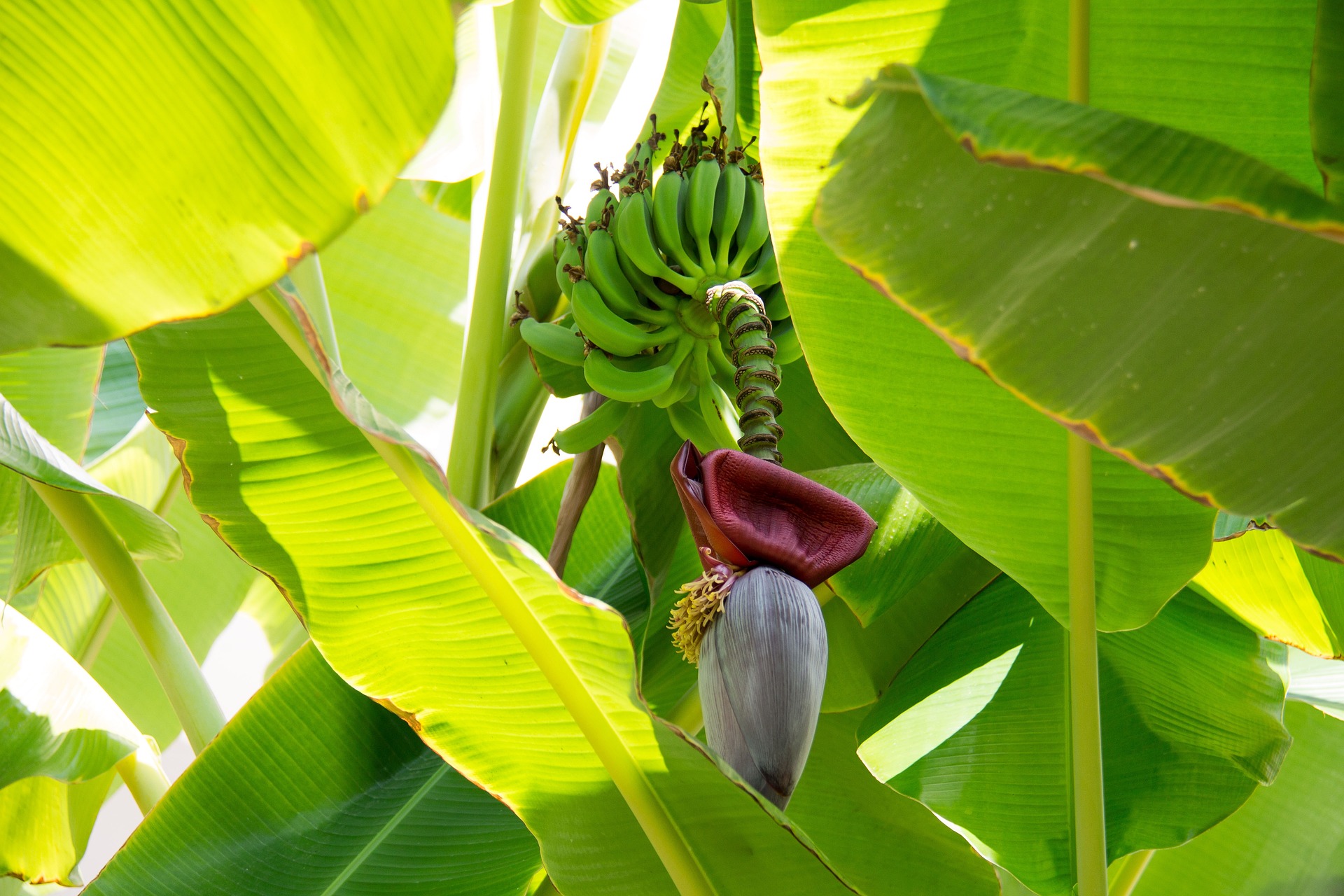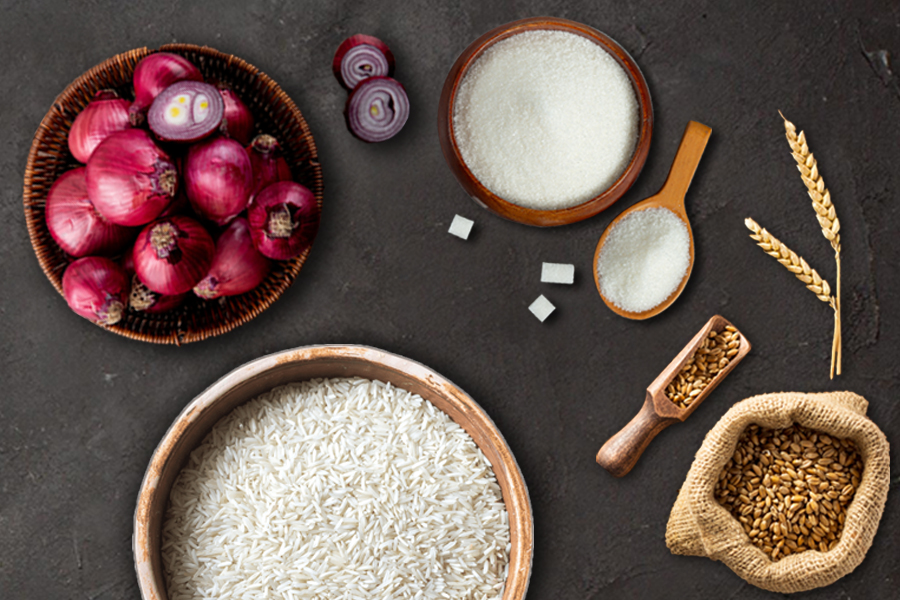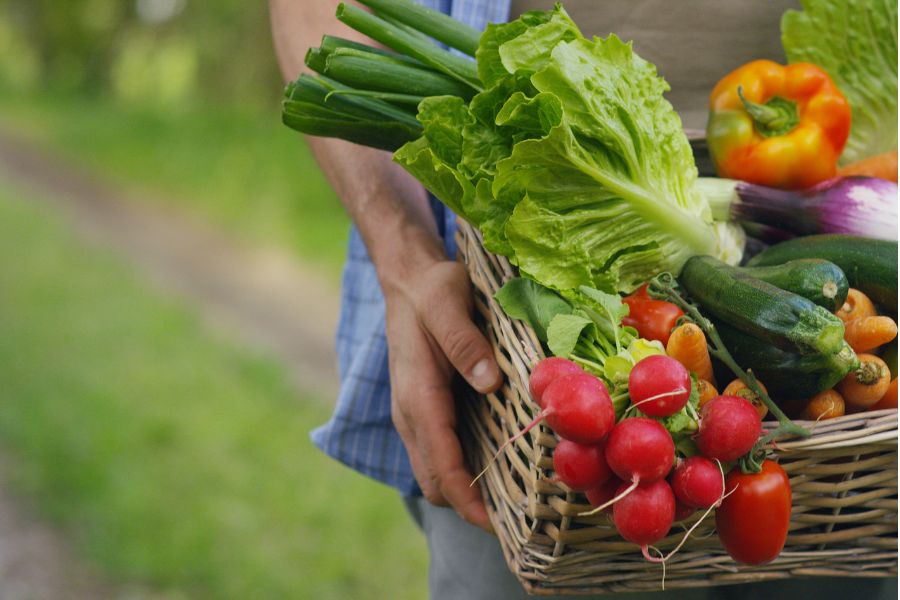Need of small scale food-processing industries at village level
The Minimum Support Price (MSP), as determined by the Commission for Agriculture Cost and Prices (CACP), is a linchpin in shaping the choices of farmers when it comes to selecting and planting crops. Serving as a guarantee for minimum income, MSP acts as a catalyst, emboldening farmers to undertake risks and invest in crop production.
In a discussion with IBT, Dr. Ganesh Rede, an agricultural economist, opened up about India’s MSP system and its impact on farmers and agriculture. He acknowledged challenges, especially for cash crops like cotton, where MSP falls short of covering cultivation costs. Dr. Rede recommended addressing credit access, agricultural marketing, and rising input prices. He also underscored the value of food processing for farmers and the economy, emphasizing the need for government-backed agro-processing units at the village level.

IBT: How does the government determine the MSP for different crops, and what factors are considered in this process?
Dr. Ganesh Rede: MSP is not decided by the government, but there is a separate commission for agriculture costs and prices. Previously, it was APC, i.e., the Agriculture Price Commission. In 1985, it was renamed as the Commission for Agriculture Costs and Prices (CACP). They do the survey and collect the data based on the cost of the agricultural crops. Based on that cost of cultivation, the CACP recommends the MSP, or they decide some range of prices for the farmers or for the different agricultural commodities. There are different criteria of CACP for deciding the MSP, simply based on the cost of cultivation, like how much cost is required for producing a particular crop.
There are some other factors now, like the cost of cultivation, the cost of production, and a change in the input prices. Input prices also fluctuate day by day. They also check the input/output ratio, what are the trends in the market, what are the current market rates of that particular commodity, and what is the demand and supply of that particular commodity. CACP checks the cost of living of the farmers, which means they also consider supervision charges and family labour. They also think about the international price condition or international situation for that particular commodity, whether it is in demand or not. Based on all these 13–14 criteria, MSPs are decided or determined by the CACP. While estimating these MSPs, CACP considers cost A2 and cost C2. These are some standard cost concepts based on which they decide the MSP for a particular crop.
IBT: How does MSP impact the decisions of farmers regarding crop selection and planting?
Dr. Ganesh Rede: As a soybean farmer from Maharashtra, I have the assurance that I will receive a guaranteed price known as the Minimum Support Price (MSP) of about 4300 rupees per quintal. This enables me to make an informed decision about which crops to cultivate. The Commission for Agricultural Costs and Prices (CACP) supports and motivates farmers by setting MSPs before the sowing season, allowing us to choose our crops based on potential profits. Since farming is a business, everyone tries to maximize their income, and MSPs serve as a safety net for farmers, ensuring price stability and encouraging food production. The Ministry of Agriculture and Farmer’s Welfare guarantees the minimum price, which makes MSPs the basis of farmers’ decisions.
IBT: How has MSP helped in increasing crop production and ensuring food security? Can you please provide examples of success stories where MSP has positively impacted farmers’ livelihoods?
Dr. Ganesh Rede: Suppose I am a farmer and I am planning to grow one acre or five acres of a particular crop, in my mind there will be the calculation for the amount of money that I would require to purchase the variable inputs. Variable inputs include fertilizers, fields and other inputs. Based on that I will take a risk, I will try to get institutional credit for purchasing these inputs and at the time of repayment there will be a guarantee that I can sell my produce for this MSP. So this is how MSP supports the farmer. If the farmers have a guarantee that MSP is supporting them, then they will take a risk of taking production of that particular crop. If there is no guarantee from the government or from any marketing agency, farmers will not take the production of that particular crop. This is what happens in the case of some commercial crops. MSP is not enough for the cotton because cotton is a heavy feeder crop. It requires a lot of spraying. There are a lot of problems that they are facing on the field. The MSP doesn’t help the farmers in the case of cotton.
IBT: What strategies can the government employ to ensure that the benefits of MSP reach small and marginal farmers effectively?
Dr. Ganesh Rede: As a resident of Maharashtra, I have seen the struggles that cotton farmers face on a daily basis. It would be beneficial for the government to offer subsidies specifically for these farmers, given the high expenses involved in cultivating cotton and the difficult field conditions. For example, farmers are required to pay marketing commission charges, and it can take up to four months to grow a crop. Despite their efforts, they frequently earn little to no profit and may even be unable to cover their expenses. Although the government has set the MSP for cotton at 6,000 rupees, it is insufficient. It would be helpful if the government established direct marketing arrangements for purchasing agricultural products from farmers, ensuring that they receive a fair price for their crops. This would encourage them to continue producing cotton or other cash crops. It is essential to address this issue as soon as possible.
While an increase in MSP price may help big farmers, it may not have the same positive impact for small or marginal farmers. This is due to the fact that small farmers have to buy agricultural inputs in smaller quantities, which increases the cost of cultivation per hectare or acre. In contrast, big farmers can buy in bulk at wholesale rates, resulting in a lower cost of production.
It is important for the government to take into consideration the challenges faced by farmers, especially those growing cash crops like cotton. While I’m not suggesting a significant increase in MSP, the government should at least account for the field realities faced by farmers. Additionally, the government should arrange for marketing, as middlemen often engage in malpractices and charge illegal fees to farmers. As a result, farmers are not able to benefit from their crops, and are already facing financial struggles. The minimum support price set by the government is not sufficient, as farmers are required to pay more from that minimum price. For instance, while MSP has increased by 6%, input costs have increased by 12% to 15%. Prices of insecticides, pesticides, nitrogenous, phosphatic, potassium, micro-nutrients, growth regulators, herbicides, and fungicides are rising rapidly, often doubling compared to the MSP, which is why small and marginal farmers are not making a profit..
IBT: What are some of the drawbacks/challenges associated with the current MSP system in India?
Dr. Ganesh Rede: In my opinion, most farmers do not have credit availability when they decide to grow a particular crop. The government must focus on agricultural marketing and infrastructure facilities because farmers are facing problems there. The government should think about family labour because if a farmer is doing farming, they are actually engaging themselves in all the activities of farming. They must also include the supervision charges for the farmers while estimating the cost of cultivation and defining MSP.
IBT: Some expert opinions suggest that adding value to agricultural products may be a better approach to making MSP more effective in addressing the issue of post-harvest losses and a lack of value addition in agriculture. What is your perspective in this regard?
Dr. Ganesh Rede: Value addition is a totally different thing than the MSP. If you think about the value addition, it is not possible for every farmer to do that, specifically the small and marginal farmers, and sell it into the market. For that, the government must take the initiative. They must develop these value-added or agro-processing units at the village level. The government must establish an agro-based industry through which it can purchase soybeans from that particular area, and the government will add value. So farmers will get a better price for their produce in their own village. Another thing is that if there are some NGOs or some self-help groups in that particular village, the government should provide subsidies or motivate them to enter the processing industry or the value-added business. This will help to generate employment; this will help to improve the social and economic status of the farmers. So product-specific agro-processing industries should be established.
In Maharashtra, if you think about the Kokan region, the government should think about the processing of the mango, the processing of the cashew nut, and the value addition and processing of the rice. In western Maharashtra, the government should think about the processing of the jowar millets and the processing of some other crops, such as the pomegranate or the banana. In the case of the Marathawada region, the government should think about the processing of cotton, soybeans, or arhar. These are the main crops in that particular area. So, the government should focus on the main crops in that particular area and value the addition of those crops in that area itself.
IBT: How can the food processing industry help increase the value of agricultural produce and help farmers earn more?
Dr. Ganesh Rede: To boost the agro-processing and food industry in Maharashtra or India, we should prioritize the production of specific food crops. Providing subsidies for the production of these crops and running promotional activities can encourage their production. While the government’s efforts to focus on millets are commendable, establishing food processing industries at the village level and adding value to crops is crucial. I hail from the Solapur district of Maharashtra.
Collaborative efforts by the Government of India or the Government of Maharashtra to develop the food processing industry based on jowar production can greatly benefit and motivate farmers. Unfortunately, the Solapur district of Maharashtra is seeing a decrease in jowar production due to a lack of profit. This problem is further compounded by a shortage of labor in Maharashtra, as farming work is not attracting anyone due to a lack of returns. Establishing small agro-processing industries in the region can help boost the economy, increase food production, and motivate farmers to grow crops they have experience in. To achieve food grain production independence in India, it is necessary to establish small-scale industries at the village level.
Dr. Ganesh Rede is an agricultural economist. His education and family background from graduation to Ph.D is in agricultural economics. He is also teaching at the Department of Agricultural Economics, College of Agriculture, VNMKV, Parbhani, Maharashtra, India.













India needs more agricultural economists like you indeed.I appreciate and agree with your opinion regarding the establishment of agro processing industries in India at village level,and supervision charges should also be considered.nyc article✅👍
Excellent evaluation of MSP , thoroughly studied and mentioned open house topic. Need to confront the situation.
Really good information about What is MSP. why it is needed, how it helps in taking risk and reduces it for farmer. It also put lights on on going conflict between farmers and govn. About MSP increment.
👍👍👌🏻👌🏻
👍✨
Informative article regarding to rural economy point of view
👍